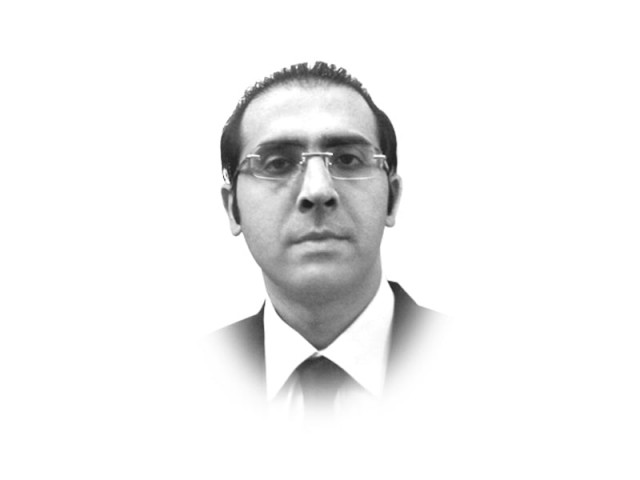Our Little Worlds
It's patronising, insulting when people make inaccurate, generalised observations about us. Yet, we do the same.

The writer is a lawyer and partner at Ijaz and Ijaz Co
in Lahore
saroop.ijaz@ tribune.com.pk
For example, those living outside of urban centres are not only uneducated but ‘medieval’, their cultures ‘primitive’, their judgment flawed (hence, one man/woman, one vote is not applicable to them). The territory is ruled by uncouth, gun-totting feudal overlords raping women and shooting peasants for sport. This is not to suggest that there are not problems in rural cultures, yet many people who will use these generalisations will be considerably more nuanced when opinionating about societies that they know or consider their ‘own’. Similarly, a lazy and dangerous conflation is between the ideology of religious extremism and ‘Pashtun’ culture, falsely portraying the fight to be rooted in ‘culture’ as opposed to religious ideology. This not only has tremendous condescension but is also deeply disrespectful to the honourable, valiant culture of the Pashtuns (Bacha Khan’s death anniversary also just passed and he can be looked up as an example). And the assumption is not really that different from Pakistanis speaking Arabic. Nowhere is this mindset of knowing the ‘natives’ more than they know themselves more obvious than in our discourse on Balochistan.
I do not have any expertise or enough knowledge to talk about Balochistan with authority. Yet, some of the ignorance can be attributed to our media’s blackout of the province. It takes a catastrophe, something really earth-shattering, to make us talk and perhaps, even think about Balochistan. Akbar Bugti’s assassination, a hearing in the United States Congress, a hundred people killed in a terrorist attack, etc. Generally, the event that forces us to talk is of such a magnitude, that our brief attention, sometimes outrage, is captured only by the event itself, removed from the context. The Hazaras protesting in sub-zero temperature with the bodies of their loved ones was one of the most moving and chilling things this country has seen. The solidarity displayed, the hope that honest, decent people can stand up and force the state to act, without a shot being fired. However, it was somewhat depressing to see that all that the protests got us in tangible terms was ‘Governor’s Rule’ and not a commitment by the state to initiate a crackdown on the Lashkar-e-Jhangvi (LeJ). The chief minister, Nawab Raisani, was not only criminally incompetent, but insensitive to the point of callousness and he will not be missed. Yet, the imposition of governor’s rule and handing over the province to the FC has largely been allowed to go unexamined. The province was already under the control of the FC, admitted by all stakeholders, and it was not working. Now, it formally is. The lack of debate has a tinge of something ‘colonial’ about it.
From a purely instrumental view, human tragedy and military operations are generally a favourite of the media, as it is good business. Curiously enough, apparently this is not true when it comes to Balochistan. First, the military operation in Mashkai, then in Mastung or the general conflict in Balochistan, is always a side story, if they are mentioned at all. What would explain that? First, is the cynical explanation that the media is coerced to toe the line of the establishment when it comes to Balochistan. This is probably partially true. Secondly, it can be explained by a heightened (perhaps, even misplaced) sense of nationalism, which compels them to not even acknowledge the possibility that there might be a ‘nationalist’ struggle going on. An example of an elementary question not asked in the mainstream media is, how come the armed forces and the military establishment who remain ‘efficient’ and ‘clinical’ in dealing with the Baloch nationalists (evident by the number of missing Baloch) are suddenly clueless and helpless about the whereabouts of the LeJ operatives? There might be possible answers to that question, but we have not heard them because the question has not been asked.
How much time is given to the Baloch ‘nationalist’ narrative on the national media, not necessarily to endorse it, but to at least inform the general public of what specifically is the nationalist position? The answer is, not enough. The answer also has a related question, how many mainstream, new anchorpersons or editors are Baloch? This, perhaps, will explain the apathy. I do not allege malice (for the most part). The explanation might be simpler, people generally care less about ‘them’, the other, are less critical in examining the information and become more confident in pontificating. In the interest of fairness, one cannot put the blame solely on the media. How many federal secretaries, ambassadors, or for that matter, generals are Baloch? This should not be too hard to find, for our vibrant cadre of investigative reporters and experts, of course, if it catches their fancy and they get the time. Someone can go even further and do these numbers for the past 65 years. They can be compared with other provinces and we can see the proportion (even to population) of the representation. I do not know what the numbers are. Yet, perhaps, this will reveal that the Baloch have no meaningful representation in real policymaking, both internal and foreign. More disturbingly, it may even bring to light that the Pakistani State does not really trust the Baloch, never has. Perhaps, this will reveal some answers to what the conflict is all about.
Published in The Express Tribune, January 27th, 2013.















COMMENTS
Comments are moderated and generally will be posted if they are on-topic and not abusive.
For more information, please see our Comments FAQ